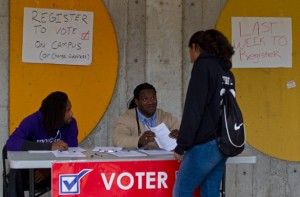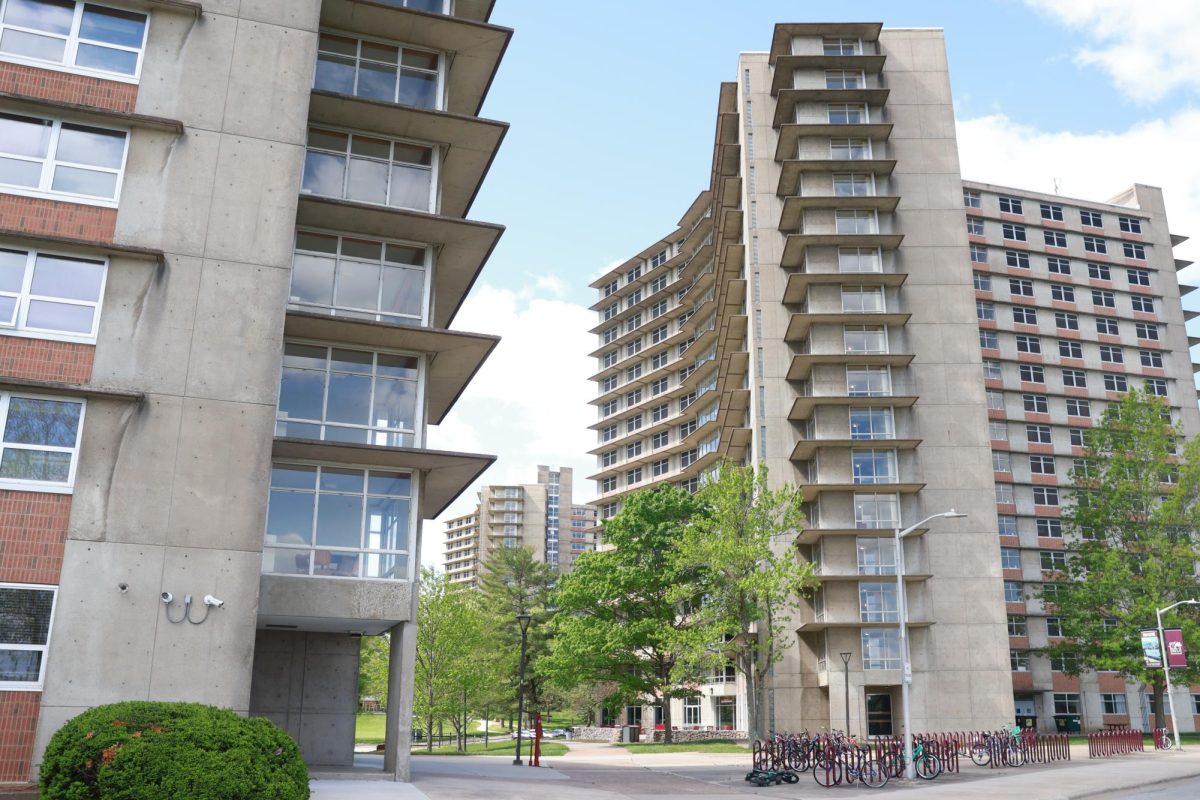Fraternity registers students to vote

October 9, 2012
The 2012 election’s outcome could have a major influence on students, and members of the Omega Psi Phi fraternity said they hope the group’s efforts helped students realize this.
Nicholaus Bates, a senior from Chicago studying administration of justice Omega Psi Phi member, said the fraternity has helped more than 2,500 people register to vote since the group began its efforts Aug. 24. He said the fraternity set up a voter registration table during the 2008 presidential election but increased its efforts this year.
“We wanted to start earlier rather than later, and we even extended our cut-off date from the first week in September to the Friday before fall break because we realized it was several people who didn’t know we were doing this,” Bates said.
Advertisement
The fraternity set up tables in the Faner breezeway, the Student Center and campus dining halls as well as around Carbondale, saying they hoped to get as many people registered as possible.
“We wanted to raise awareness so students could get involved, stay involved and stay attentive to what’s going on even after the election,” said Larry Luster, an SIU alumnus from Springfield and fraternity member.
Lamar Johnson, a senior from Chicago studying health care management Omega Psi Phi member, said he thinks it’s important for student voices to be heard because either candidate would effect students, no matter the outcome.
“Each candidate has different views in regards to money,” Johnson said. “Students need to educate themselves and understand that we’re the ones being attacked.”
During registration, one person insisted the fraternity take down an Obama campaign sign it had posted behind the table because of legality issues. The group took the sign down and continued to register voters.
Larry Reinhardt, Jackson Country clerk and recorder, said 33,995 people were registered to vote in the county as of Friday. He said 1,195 people between the ages of 18 and 24 have registered since Aug. 1, and he expects that amount to continue to increase.
“We have over 1,000 people we haven’t even entered into the database yet, and there are several people continuing to come in each day,” Reinhardt said. “The last day of registering is always hectic as well.”
Advertisement*
Even though some students have been trying to educate young adults on voting importance, David Yepsen, director of the Paul Simon Public Policy Institute, said he thinks the younger-voter turnout will be lower than the last presidential election.
Yepsen said the voter turnout has always been lower for young people compared to older people. However, he said this election pertains to students more than they realize.
“I’m a big believer that young people have more at stake than anyone because it’s not my generation that’s dying in the war, and it’s not my generation that will be paying down all this debt; it’s the younger generation,” Yepsen said. “They need to realize the severity.”
Some issues the presidential candidates say they plan to address involve higher education costs.
According to U.S. News and World Report, Mitt Romney’s A Chance For Every Child plan could provide a basis to reduce or eliminate programs such as Pell grants, income-driven repayment plans and loan forgiveness as well as regulations like the gainful employment rule, which is a program where the federal government gives money to colleges and universities to track the success and purpose of their programs.
Obama’s plan for student loans, according to U.S. News and World Report, includes three sections. His plan advocates for student loan consolidation, which would allow people to combine all of their loans into one monthly payment to help avoid default. It also calls for income-based repayment. The third part calls for consumer protection, which is a model geared to help students figure out the real cost of different college options and to guide students in the payment methods that best suit them.
Advertisement








